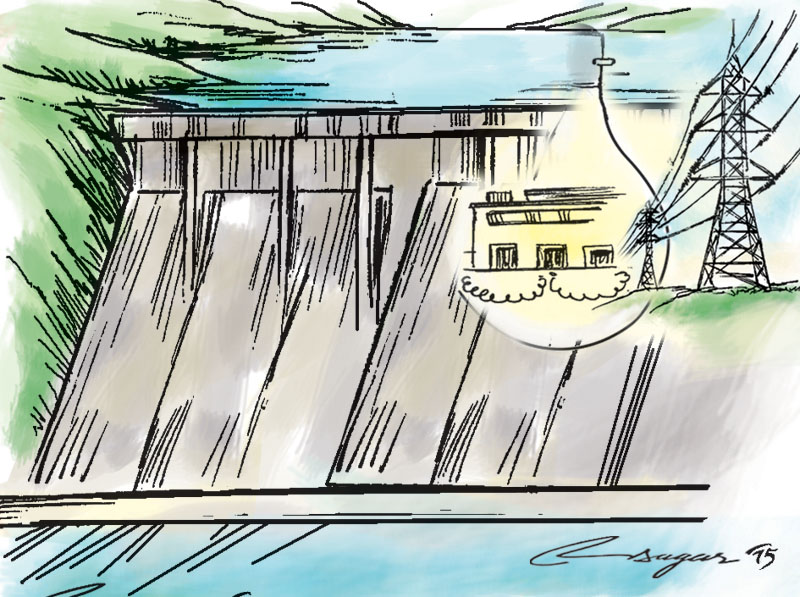GMR to sell Upper Karnali’s energy to BPDB and HPGC
Kathmandu, July 5
GMR Upper Karnali Hydropower Ltd, a subsidiary of GMR Energy India, is close to achieving financial closure as GMR Energy is going to sign grid connection agreement with Bangladesh Power Development Board (BPDB) and Haryana Power Generation Corporation Ltd (HPGC) to sell at least 300 megawatts to each.
“We have already signed the memorandums of understanding (MoUs) with them,” said Harvinder Manocha, chief operating officer, Hydro Business of GMR Energy. “After BPDB and HPGC sign power purchase agreement with us, we will be able to obtain loans for financial closure.”
The MoU with BPDB was signed during the visit of Bangladeshi Prime Minister Sheikh Hasina to India in April this year.
Manocha said that some international lenders have shown interest to provide loan for GMR’s Upper Karnali project as the developer is gearing up to sign PPA for 600 megawatts of the energy out of installed capacity of 900 megawatts. Developer has to achieve financial closure within the deadline of September 18, 2017 given by the Investment Board Nepal.
“Everything is moving ahead smoothly. We want to develop Upper Karnali as a regional project, and it will be a model project for foreign investors willing to come to Nepal,” he said.
When the project development agreement (PDA) was signed in September 2014, the cost of the 900-megawatt project was expected to hover around $1.03 billion. However, developer believes that cost could escalate to $1.5 billion.
GMR has also shortlisted the bidders for civil and electromechanical works and bidders will be finalised soon. Once the project begins construction, around 5,000 people are expected to get employment opportunity and the country will receive 27 per cent free equity and 12 per cent free energy from Upper Karnali project.
Apart from that, Nepali suppliers of construction materials will also stand to benefit, as per the developer. The developer has been given seven years to conclude the construction and the project must be handed over to the Nepal government after 25 years from the date of power commissioning, as agreed in the PDA.
Despite all these positive developments, the project is facing a major roadblock from the Ministry of Forest and Soil Conservation as it recently introduced a new guideline titled ‘Utilisation of Forest Area by National Priority Projects’, which requires ‘land to land’ compensation for the utilisation of land in the forest area.
Earlier, the ministry was willing to provide 5,000 ropanis of government land for nominal lease fees and sought compensation for land area where permanent structures like dam, power house would be built. Developer is going to purchase 1,000 ropanis of private land in Dailekh and Achham districts.
On the other hand, as per the new forest rules, the developer needs to plant 25 saplings in another area of similar topography for chopping every tree for the project and nurture the saplings for five years.
The developer has complained about the recent stringent forest rules of the government. Private sector developers have also been urging the government to respect the PDA as a bilateral document and ensure policy stability for the development of the power sector.






